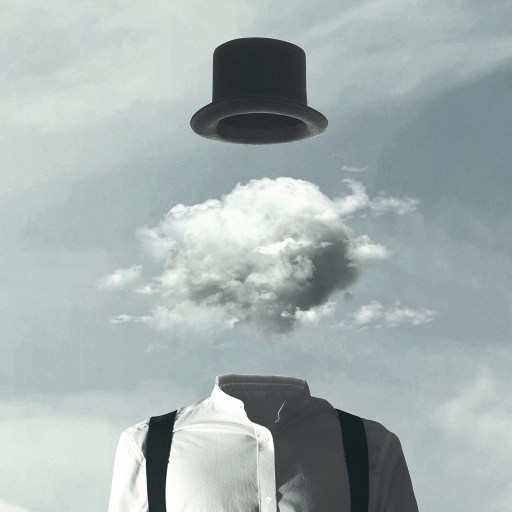bigthinkeditor

Instead of just another social media angle, Read Write Web has some tips on how to tap into on-the-ground news on what is happening in Japan.
The Atlantic Wire continues its series on media diets with Tom McGeveran, editor and co-founder of Capital New York, detailing his daily regimen, which starts in the middle of the night.
Algorithms are allowing advertisers to better target us with books we’re likely to like. Macy Halford wonders if one day these mind-readers will equal advice from real-life friends.rn
Tapping into the community zeitgeist can yield positive results for brands locally, so long as it is targetted in a non-obtrusive philanthropic style both online and offline, says Nick Davies.
Randall Stephens says that creating a Digital Public Library of America would be no easy task but it’s encouraging that conversations/debates and planning have begun in earnest.
Among trending topìcs from the current Predictive Analytics World conference is that risk managers must master micro risks, not just “headline risks”.
Canadian Senator Dennis Dawson urges his country to create a digital society, stressing this is much more than just a digital economy and integrates all social spheres, including health.
What should be a right in the digital age? On March 21st, the occasion of the human rights celebration in South Africa, a blogathon will address this question.
The new cancer stem cell theory has forced scientists to reevaluate the efficacy of our own weapons as we wage war against the disease.
India has overtaken China to become the world’s largest importer of weapons, according to a Swedish think-tank that monitors global arms sales. Russia remains its biggest supplier.
Protesters and police clash in Bahrain as a main road is blocked in the capital. Yemeni security forces attack a huge sit-in; live ammunition is fired. Oman’s sultan grants limited power to the state council.
Ivory Coast’s commercial capital Abidjan is descending into a violence as a weakened president is making way for violence against native men and women, U.N. peacekeepers and foreign journalists.
Latin America is experiencing an exceptional boom, owing to soaring income from exports of natural resources. But is the region making the most of this opportunity to use the funds effectively?
During the Clinton years, it would have been easy to secure support for intervention in Libya, but now N.A.T.O. appears timid over the issue of humanitarian intervention. What happened?
The U.S. and U.K. expressed support for the Arab League’s approval of a no-fly zone as Libyan rebels beat a hasty eastward retreat, but is the council’s action too little, too late?
Israel said that it would build hundreds of new housing units within the populous West Bank settlement blocs, ending a slowdown in government-supported construction that had lasted several months.
As Gaddafi hangs on to his military might, rebel forces have abandoned the town of Brega leaving open the road to Bengazi—the last major rebel outpost in the anti-Gaddafi east.
Leading author on democracy promotion and democratization, Thomas Carothers debunks the myths surrounding the Arab world’s new governments—and wonders what role the West should play.
Japan’s Prime Minister Naoto Kan said the country was suffering its worst crisis since World War II. The death toll could exceed 10,000 in one district alone, police warned.
If futurists like Ray Kurzweil are correct about the accelerating pace of technological breakthrough, it is only a matter of time until we augment our brains with machine components.
Could a genetic disorder and a rare blood type explain Henry VIII’s health problems, his wives’ miscarriages, and even his madness? New findings shed light on England’s most infamous king.
A new study of a common etiquette—holding a door for someone—suggests that courtesy may have a more practical, though unconscious, shared motivation: to reduce the work for those involved.
Like schools of fish that respond to predators, we need to rely on our unconscious impulses because, by and large, it makes us smarter and quicker, says psychoanalyst Ken Eisold.
More than any other Eastern thinker in the 20th century, Suzuki catalyzed the rise of humanistic psychology, which has spurred today’s interest in spirituality and well-being.
States desperate to cut costs during the recession have slashed non-Medicaid spending for mental health care by more than $1.8 billion since 2009, diminishing necessary services for the mentally ill.
Our culture once depended on the memorization and recitation of long-form narratives like stories and poems. What does it mean that we are losing our capacity to recall our own culture?
A study from the University of Toronto has found that the more a woman’s job encroaches on her family life, the more guilty she feels—and interprets the guilt as personal failure.
Is studying the brain a good way to understand the mind? V.S. Ramachandran, director of the Center for Brain and Cognition at the University of California, San Diego, thinks the answer is definitely yes.
Disaster survivors in Japan must not only deal with physical trauma from earthquakes and tsunamis, but with psychological distress that can strike immediately, soon after or long after the event.
It’s natural to watch a child closely to see where he or she might excel. But surveillance that drills down to the subatomic level via personal D.N.A. testing is ridiculous.
